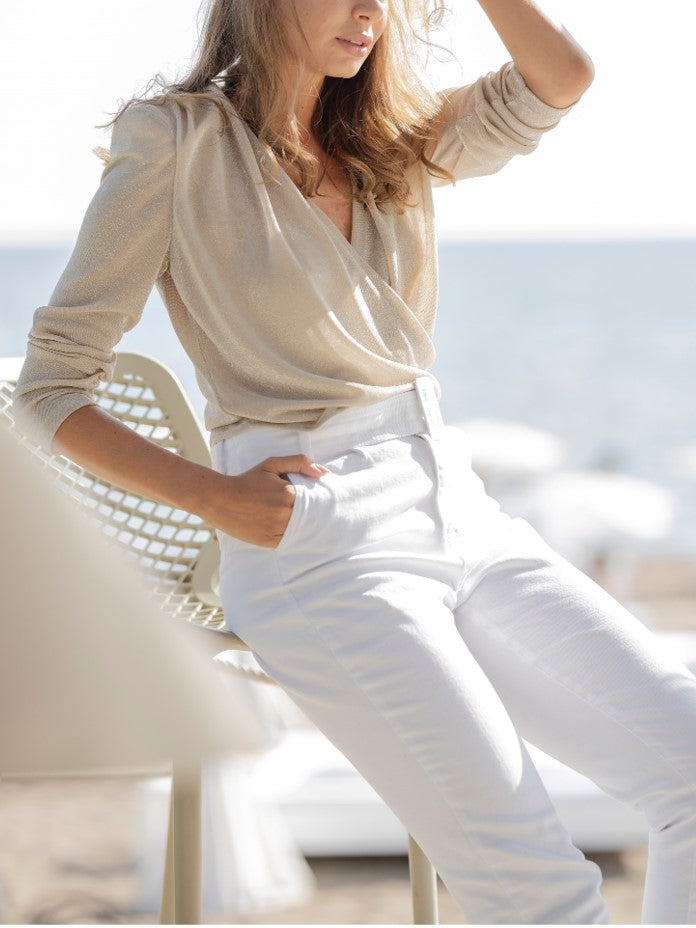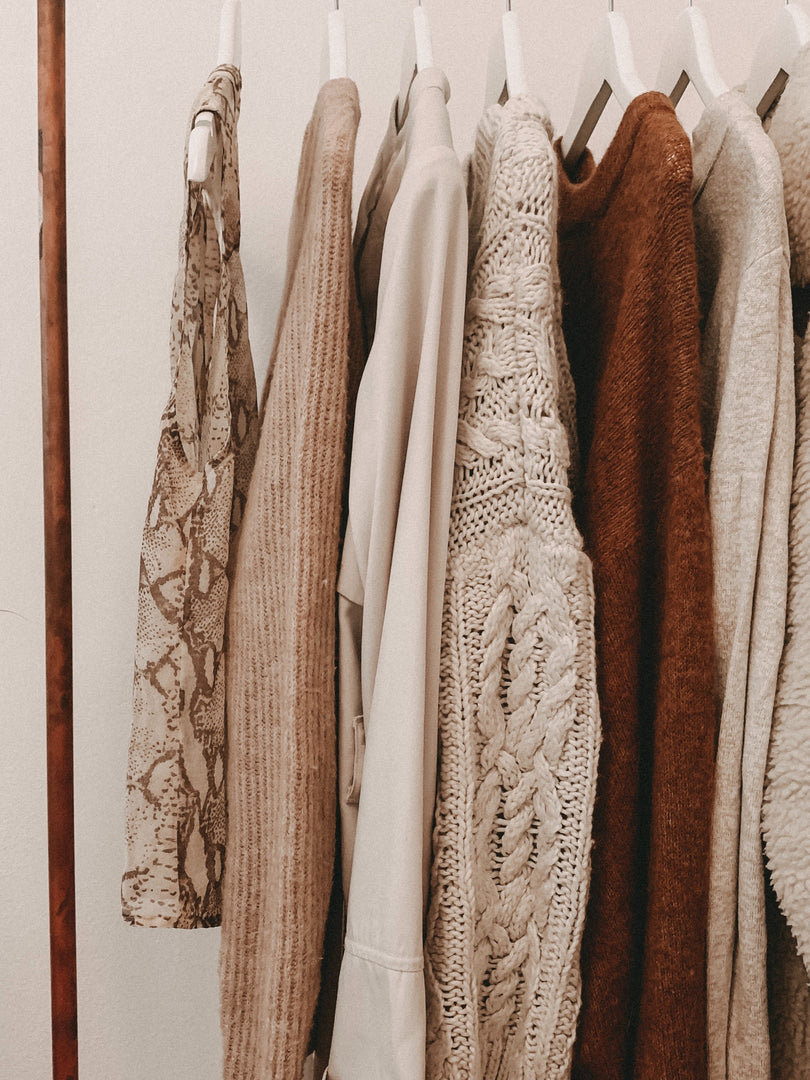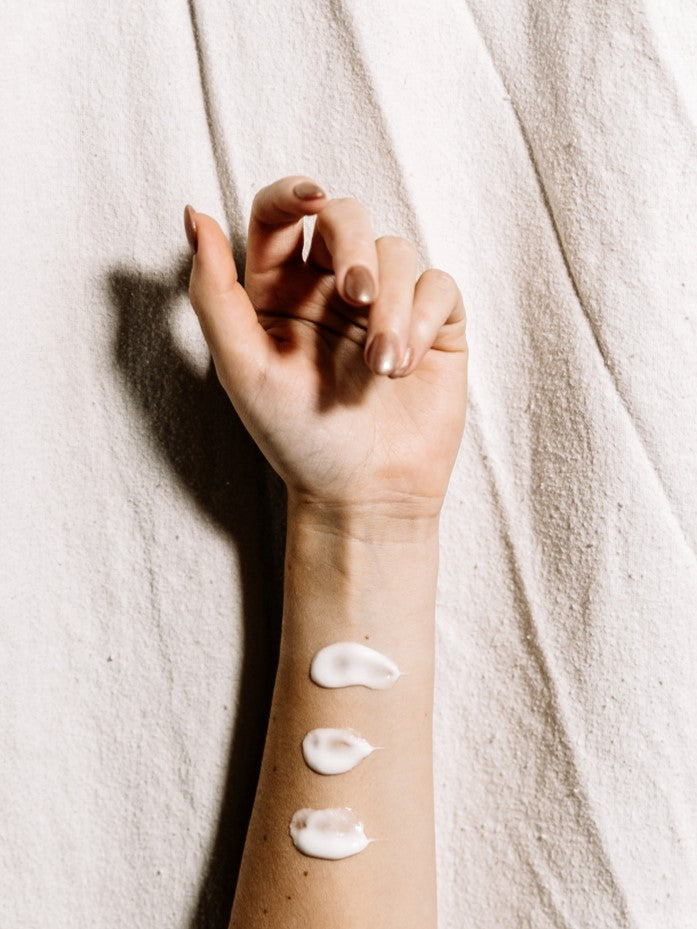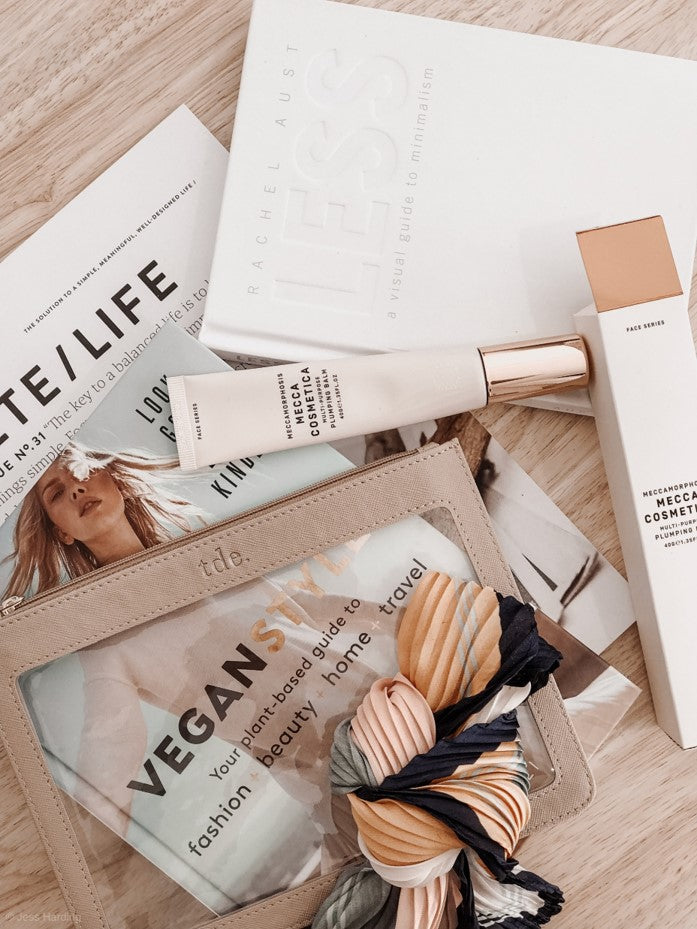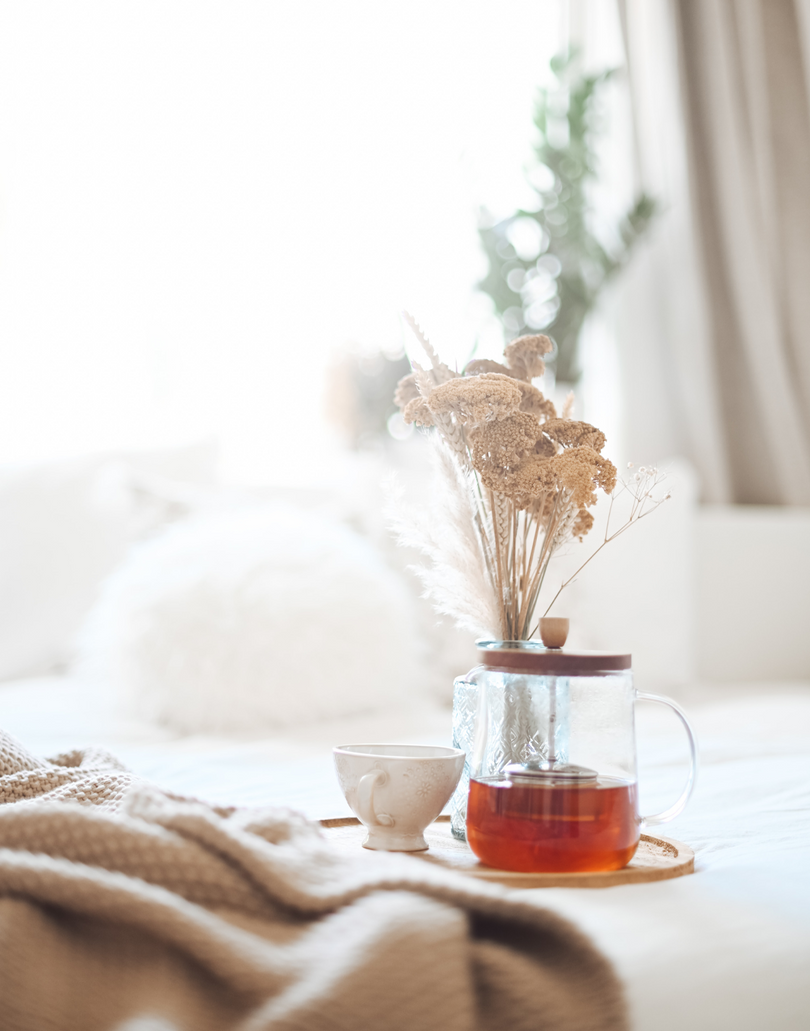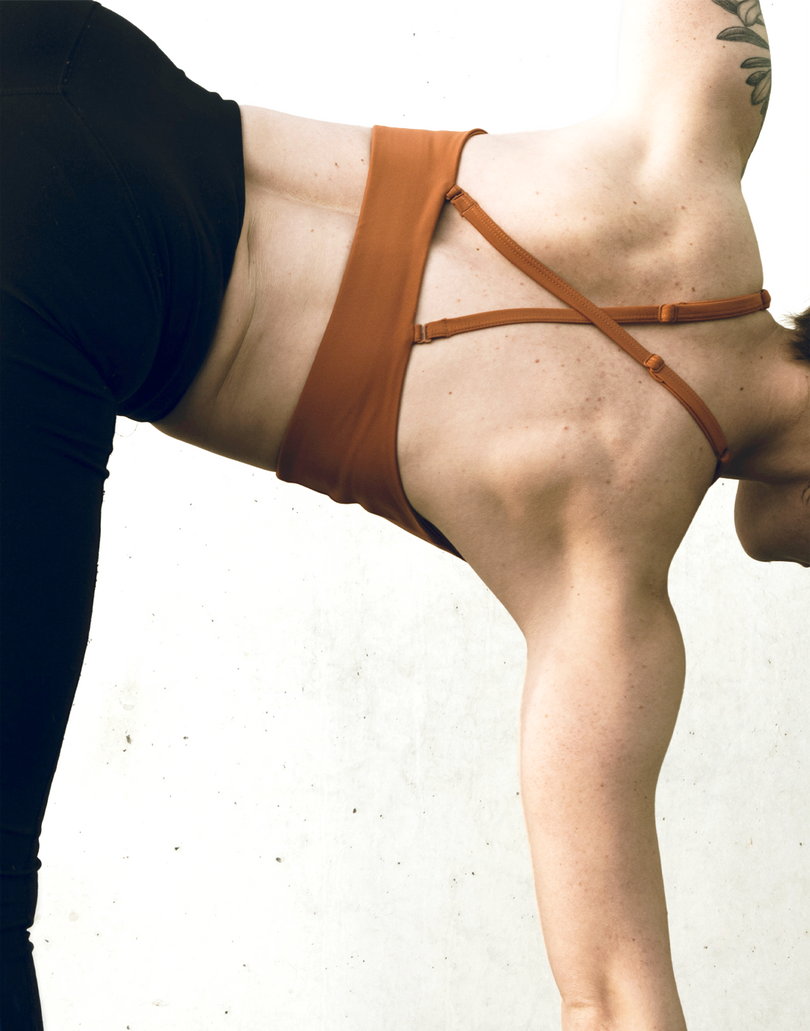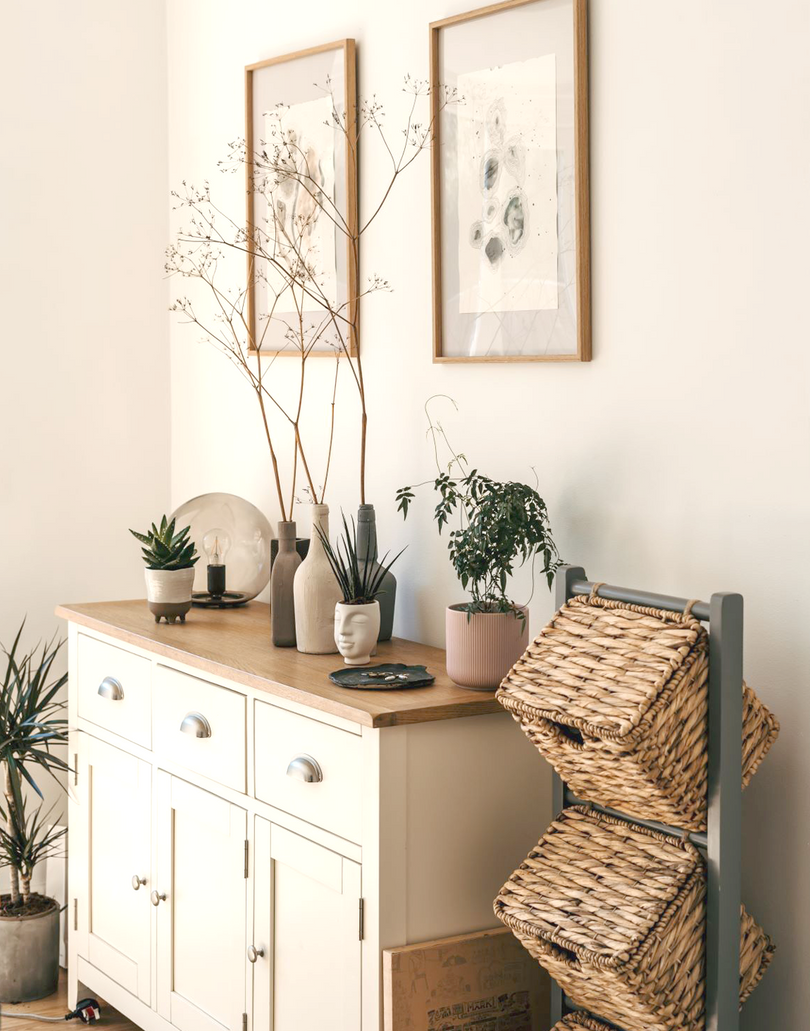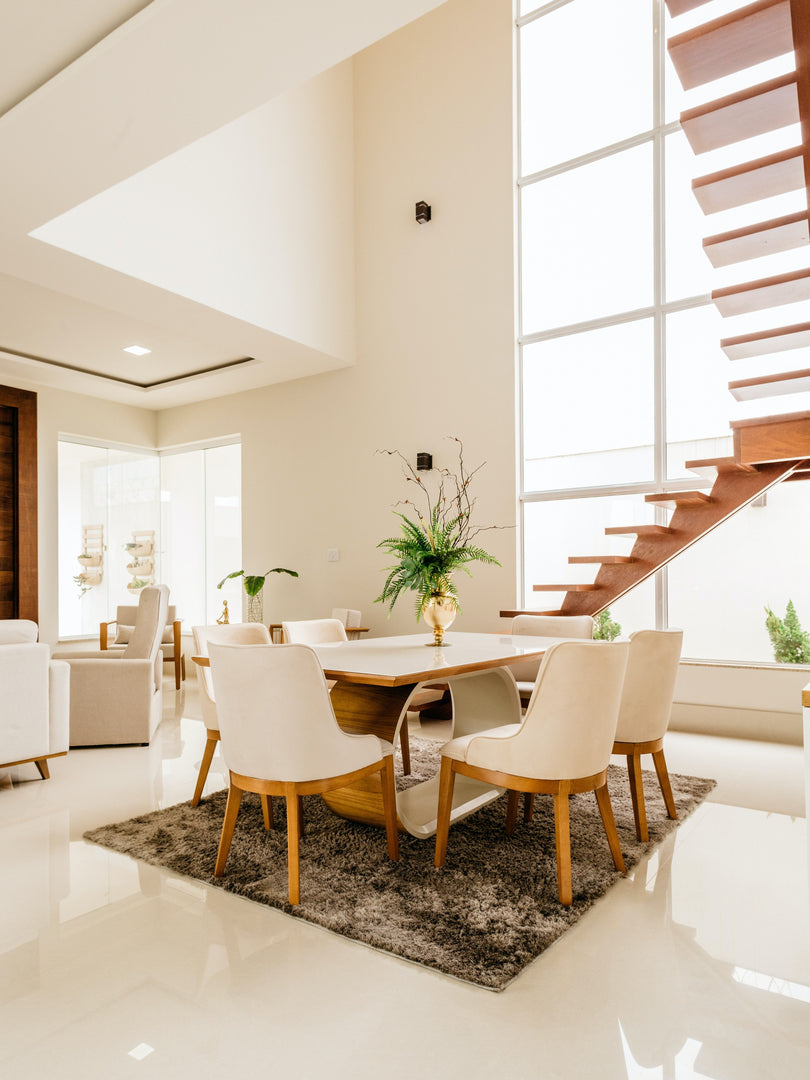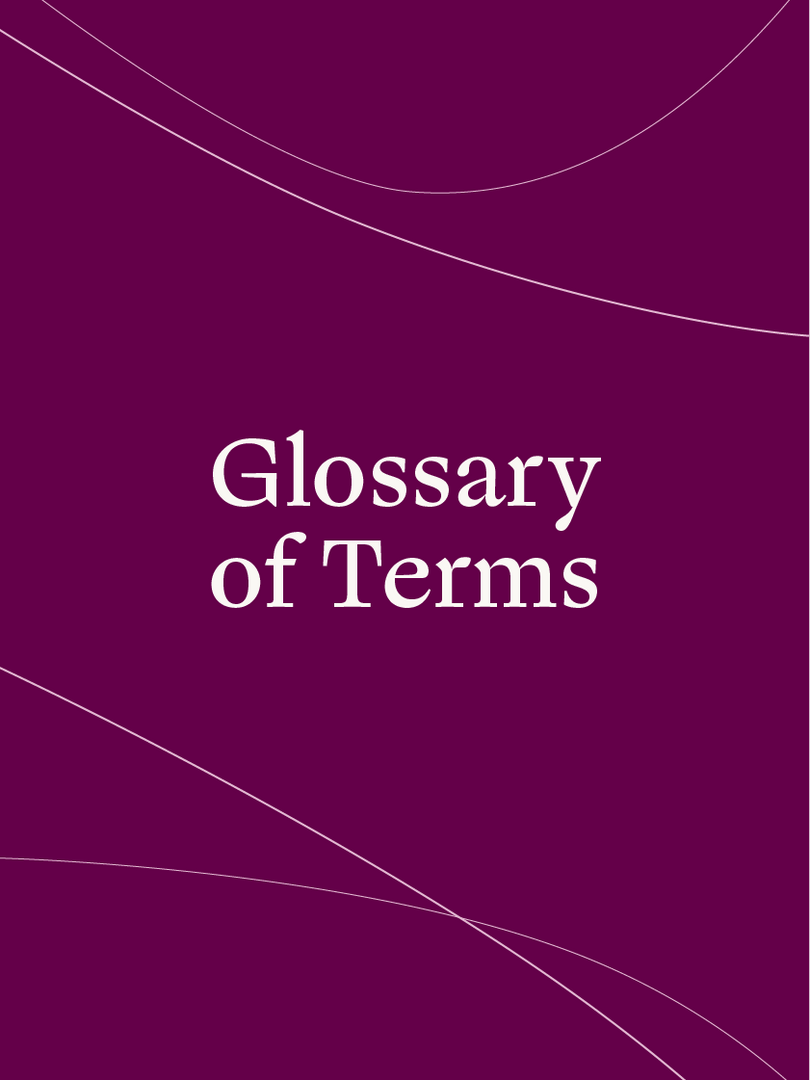Traditional Chinese Medicine offers an effective, alternative path to health and wellness. Acupuncturist Jason Salim, L.Ac. spoke with Oscea about his practice and explained the benefits and misconceptions around Traditional Chinese Medicine. Jason is a licensed acupuncturist and herbalist who holds a Masters of Science in Traditional Chinese Medicine (MSTCM) and Doctorate in Asian and Oriental Medicine (DAOM). He is an established practitioner with a private practice in Oakland, California.

Photos by: Sonya Yruel
1. How do you define or categorize your practice?
Often I want to give due respect to what medicine is, so I call myself a Traditional Chinese Medicine Practitioner, or an Eastern Medicine Practitioner because that's kind of an umbrella for the constellation of things that we do. An acupuncturist is a little easier to connect to so often I just say that.
2. Could you explain what acupuncture is to someone who has never tried it?
Acupuncture is one of the five branches of Chinese medicine. It is a method of treatment where small needles are inserted at specific points on the body and face to engage with the patient's physiology and help manipulate the vital energies of the patient's body. There are a few different schools of thought, or what we call lineages or approaches, to acupuncture. The one that most people are familiar with in the west is the Meridian system. Along these somewhat invisible channels in the body (but sometimes palpable pathways) there are specific anatomical landmarks or energetic pools that we can use to interact with the patient’s physiology to have certain outcomes. When practiced well, acupuncture is an interaction between the practitioner’s intentions, or “Yi,” and the innate intelligence of the patient’s body – what is sometimes called “Qi.”
3. What are the health benefits of acupuncture? What kinds of health conditions does acupuncture particularly support? What conditions do you treat most?
Often in acupuncture, we say we treat the patient. We're not treating the disease, we’re treating the person. So the health benefits are pretty much endless because it's focused on your specific physiology at a point in time. Popular treatments address back pain and musculoskeletal pain. Anxiety and stress are big ones. We know the body and mind are one. The dichotomy between two is kind of an antiquated illusion. Right now because of covid and the state of the world, nervous system regulation is huge. Other things it is well known for are, fertility and other women's health issues, like regulating menstruation and supporting labor.
4. Is there scientific proof that acupuncture works?
That is an interesting question because there is an assumption in the question rooted in a materialist framework. But yes. There is some proof. There are studies on how acupuncture can affect certain hormone signaling within the endocrine system in the body. On a physical basis, we can also look at how it regulates neurotransmitter production in the nervous system. We can look at patient outcomes and studies and will often see statistically significant differences between groups receiving acupuncture for a certain outcome and those receiving either placebo or no intervention. The challenge remains that there is another framework and paradigm shift towards understanding that it doesn't always neatly fit inside our material basis of science.
5. Can pregnant women and babies get acupuncture? If so, how is it different?
Yes, pregnant women can get acupuncture. It is very safe. There are certain points of the body that you're not supposed to needle. Some of them are very logical. And in some areas modern research has shown that it could stimulate uterine contractions – which is great if you want to assist with labor but not so great if you want to keep the baby in utero. So we avoid those points. In the texts, they are sometimes even forbidden – which is just a way of saying don’t do this.
Overall, acupuncture is really supportive of pregnancy and is really effective in treating various stages, such as nausea or morning sickness that comes up in the first trimester or back pain and restlessness in later pregnancy. It’s also really helpful in the later stages with helping the body prepare for labor and helping with smooth delivery.
Generally, we don’t treat babies. There is a form of Japanese acupuncture that uses these metal implements that don't puncture the skin but work on a more energetic basis. It’s more like acupressure. Kids are so sensitive that you can actually do really subtle work and shift them profoundly. I don't know if other practitioners would treat a baby because there's so much variability, but I would never do acupuncture on anyone very young. I’d either do energy work or refer them to someone that was a specialist in working with young children.
At a certain age, with children like teenagers, it’s no big deal. They usually respond really well.
6. Tell us a little bit about your background and how you got into this field?
I get asked this a lot. There's two things that I circle around. They’re kinda the same thing. Healers are often sensitive or emotionally receptive people. I feel like that's true for me. When I was young I had an awareness that I didn't quite understand. I was one of those people others tell their life story to after meeting. And when people open up, you often feel really invested. You start to see the dissolution of separateness. Sensitives tend to have this suffering – sometimes it’s you and sometimes it’s others and sometimes it is the world and that can be hard to make sense of. That awareness led me to begin to understand that other people's suffering was also my suffering. So I got really curious about people. I was also a pretty daydreamy kid. Once you become curious about learning and about the world, you realize that you can learn whatever you want. So I ended up searching. I became a seeker. I started to study.
Since I was curious and invested in others, I ended up getting my Bachelors in psychology. But I became more interested in social psychology. In sociology. In research. At the time, to me, the clinical route felt too pathologizing; which is to say somewhat reductivist. Psychology, practiced well, is a very holistic medicine. It looks at context. At systems. At spheres of influence. So instead of helping individuals, which are like little circles rippling out, I wanted to help on the societal, cultural, and structural levels, which are big circles rippling in. I did civic and academic research, then got hired by this amazing consulting firm that worked with a lot of philanthropies and non-profits. It felt like they were supporting really big entities that could positively change parts of the world, so that felt really good for a while. But I missed being one-on-one.
At that point, I was in my late twenties. People talk about that age being a time of a lot of struggle. That was my experience. Saturn returns. There was loss, personal struggle and struggle with my place in the world. And then more loss. I was disoriented and without knowing it, I was seeking again.
I don't remember why or how, but one day I was in Downtown Oakland and passed an acupuncture school I had never really noticed before. A sign outside advertised an open house at like 1 o’clock. It was like 1:15, so I wandered in. Someone was giving a talk and I just tuned into that. Everything they were saying I was like “yes!” I ended up getting a treatment in the back of that same room from this wonderful senior practitioner that I later got to study with. It was profound. Walking out I thought “Wow. Yes! I have to know more about this.” I had momentum and was curious already and it felt in alignment with what I wanted to do. That was almost 10 years ago now.

7. What education is needed to become an acupuncturist? What education and certifications have you received?
Anybody practicing in the US has to be licensed. The entry point for licensing varies, but there are two main paths. The more traditional path is that you apprentice and study under a practitioner for 10 years, which makes you eligible to sit for the examination. Or you can go the more conventional path which is a four-year Master's program. It has the foundation of Western medicine, bioscience, and Eastern philosophy, as well as the practical classes of acupuncture, herbology, qigong, etc. I did the four-year program.
More recently there is something called an entry-level doctorate where you do the Master's program for an extra trimester and then you get a doctorate title. Then there's the highest degree you can get, called the DAOM (Doctorate of Acupuncture and Oriental Medicine) and that is a more clinical and research-based degree.
8. What are the biggest misconceptions or myths you hear about acupuncture and Eastern medicine?
I think on one level, we naturally have a fear of needles and we perceive them as possibly painful, yet that is often a little trauma informed response from hypodermic needles in our childhood.
Then there’s this concept of “Qi.” Qi is everything, and everything is qi. It is material and immaterial. It is energy and it is substance; really everything is the same thing, but just with different qualities. I had a teacher that said if you can explain acupuncture with never using the word “Qi,” you're doing a really good job. It’s really present in the new age approach to simplify it to some mystical thing, and I think that is an amazing concept but also it's not that easily understood or explained.
There’s this exoticization or romanticization of Eastern medicine as this magical new-age only energy-medicine thing. It is, and there is truth in that, but I think that it also can be taken too far and dismiss the material and nonmaterial framework of what it actually is.
9. Have you been met with resistance in your practice? If so, how do you respond to people who doubt the validity of Eastern medicine?
For sure there are people that think it's just pseudoscience. There's a natural skepticism which is really amazing and helpful but I think that when it is just dismissed, that is more frustrating. I've been really lucky that I practice by referrals. Most of the people that come see me have been sent by somebody else I helped, so there's a certain amount of buy-in that they already have when they contact me.
10. You are also a licensed herbalist. What do you see as the main benefits of herbal medicines over pharmaceutical medicines?
Herbal medicine, when properly prescribed, is very individual and time specific. There are different schools of thought on this where some practitioners prescribe patients with a constitutional formula to help balance out your overall constitution, but the way I tend to practice involves having an intervention during a specific period of time to shift something specific. I think the trap of most Western medicine right now is that it is becoming reductionist in telling patients they are deficient in something, or there is a very specific non-system connected chemical that they want to supplement, possibly forever. Sometimes that might be true, but I really question that.
11. What are the main herbal medicines that you prescribe for stress and anxiety and how do the remedies work?
In general, there are certain herbal formulas that are more popular but I say take this with a grain of salt. It is not like you're buying Advil. I would encourage anyone interested in herbal medicine to work with a practitioner.
First we have to understand why the issue is happening? Like in the case of stress or anxiety, what is the cause of the stress? What is the cause of the anxiety? If it is a nervous system issue then we tend to look at one particular group of formulas versus another. We use differentiation or pattern recognition to identify the underlying, root cause and also consider variability. Because the same formula may not be appropriate for all people.
For example, for nervous system issues, we tend to look at the formula family based on Bupleurum, which is a Chinese herb called Chai Hu. A more modern formula that you often hear about is Xiao Yao San. If you know somebody that's ever done Chinese medicine and has stress, they were probably prescribed Xiao Yao San. Now this may or may not be appropriate depending on the person and their presentation, but broadly it may be helpful. Xiao Yao San translates to ‘free and easy wanderer’ and this evokes the image of the attained Daoist monk wandering unfettered by the constraints of life, in resonance with nature and with the Dao. Which is sort of the antithesis of stress.
12. Are there any herbal companies or products that you would recommend to our readers?
Go with a reputable company that is sourcing their herbs in accordance with traditional cultivation practices. We can get an herb that was grown somewhere in a field but it doesn't have the same medicinal qualities as an herb that was harvested, for example, at the peak of summer in the traditional region where it has always been grown.
There are a lot of great companies and individuals that are making sure that they are sustainably sourcing the herbs in a way that honors the energetics and actually makes high-quality herbs. Most of these companies are selling directly to practitioners, but there are also a few really high-quality companies selling direct to consumers at places like Whole Foods (don’t forget to check the bottom shelf). But again, you want to make sure you are taking something that is appropriate for your presentation.
13. What do you feel the relationship should be between Eastern medicine and conventional medicine?
I obviously have a bias around Eastern medicine but I think that they both serve their role. Eastern medicine at its best is used to cultivate health and prevent disease. Just like going to the gym to stay healthy, there's a role in eating the right foods and practicing breathing exercises and taking herbs when needed. Acupuncture itself is seen more as an intervention.
That said, if I got shot, I would go to the ER. So I think that they both serve their purpose.
14. Do you have any tips for those looking to create an integrative health care plan (mix of Eastern and Western medicine)?
It depends on if you're dealing with a serious disease or if you are just trying to cultivate health and wellbeing. Regardless, it would be important to have both your Eastern and Western practitioners aware of your needs and be in dialogue. For example, if you are on pharmaceuticals and you are interested in shifting to a more natural approach, work with your Western doctor to prioritize or titrate down from what you are taking as you are being supported in this by your Eastern doctor.
The ideal would be to start early as a cultivate health practice (before intervention is needed).
15. We are living in a high-speed, high-stress society that is rampant with chronic illnesses and is just coming out of a massive pandemic. Do you feel like people are gravitating towards or needing holistic care more than ever?
Part of the reason people are talking about Eastern medicine more is that the current paradigm is failing them and people are looking for answers. I think we are experiencing that on a societal level right now. There is also the skeptical part of me that recognizes it is also something you can sell and people are trying to cash in on that. It's a tough landscape to navigate as a consumer.
Right before the shutdown in 2020, there was this kinetic fervor; like Yang aggressive energy that was boiling over. Everybody was so busy all the time and there was always more to do. There was always more that you could take if you were oriented towards taking. The pandemic shut that down and it put people out of balance and really dysregulated a lot of people. Now the world is opening up and people are really scared and angry. There is divisiveness in our culture and that feeds the dysregulation. It is important to understand that we are not separate from our environments. We are not separate from our world in an interactive sense but also in an energetic sense.
16. Do you have any resources or books you can share with our readers?
A really good book is Ted Kaptchuk’s, The Web That Has No Weaver. It is one of the first western books that more deeply explored Chinese medicine. It’s a little dense and hard to read at times, but it's a good foundation.
Today, we're really lucky that we live in a time where a lot of teachers are accessible to us and there are a lot of translations. A book I am making my way through right now is Classical Chinese Medicine by Liu Lihong. It's a pleasure to read. Even if you don't have a super deep foundation in Chinese medicine, there’s still something in there you could get out of it.
17. What is your morning routine?
I used to have a regular meditation and yoga practice. There’s a school of yoga I follow where you're supposed to study at sunrise and sunset. So I used to wake up before sunrise for a class or self-practice. Lately, what I’ve found is that I'm lingering in bed a little bit and I actually really love that. I wake up and I listen to the birds singing outside and my cat will pop up and just lay on my chest. I think there's merit in the discipline and the practice but also think there’s merit in letting yourself linger and just breathe in where you are. That is mindfulness.
18. What does mindfulness mean to you?
It's really just being present in whatever is happening at that moment. Often we’re either worried about what we're about to do or what impression we're making on people or this thing that is coming up next. Or we're reflecting on what just happened. I saw two dogs get into a fight this morning and when I left, my energy was still there. My Qi was there. It takes a moment to come back, to be wherever you are. I think mindfulness is just being present in whatever you are doing. Whether it's speaking to a lovely new friend across the country, making a cup of tea, or washing a dish. Driving. Sitting. Reading a wellness and lifestyle blog. Just do that thing.
19. What is your one wish for American society and/or the typical American?
I think because of what's going on right now in the world, connection is my answer. Connection. I recently stumbled upon a podcast and they were talking about Erich Fromm. He's this German philosopher who was writing in the 1950s that said most people are primarily concerned with being loved and with receiving love, more than actually loving. He said that any attempts to love are doomed unless the individual develops their own capacity to love. Thich Nhat Hanh, a great Buddhist spiritual teacher, also talked a lot about love. He said that to love someone, you have to know them and to know someone, you have to be able to listen.
In our world right now I don't think a lot of people are listening. It’s very divisive and everyone's trying to fulfill this need of wanting to be loved. This is understandable but it's also not substantive or actually nourishing anybody. So how do you get any nourishment or substance instead of just trying to take in these things that aren’t fulfilling you? Connection. Community. It’s listening to other people and understanding and being curious about them. It's a practice of developing your capacity to love others. You give it attention. You have to nourish yourself as well. You have to love yourself. Being gentle and kind to yourself, that's a practice too. And sometimes that takes more work than being kind to someone else. Thich Nhat Hanh said something about this too. That you can be a light for other people, but you can’t offer that light until you have it for yourself.
20. Can you tell us about a patient you have treated who has had the most impact on you or your career?
There are a few patients that had a strong impact on me. I think that the most profound one was because it was very early in my career and because it was really affirming. I was apprenticing for a teacher and doing bodywork. Essentially, I was doing massages on people at the end of their sessions. Certain people that liked my style requested to have sessions with me. There was this very sweet young woman who had lost her husband tragically. She had relocated from where they had lived together to the Bay Area. For the most part, she was really healthy but there was a huge energetic cloud there. Her heart was broken.
She started booking regular sessions with me and she was really sweet and really open about what she was going through. At some point, she traveled back to the East Coast. She communicated before she left that she was going home and didn't know when or if she was coming back.
Time passed and I never heard from her. I think I sent maybe one check-in text, which I sometimes do with patients I see regularly. Months later she left me a voicemail and it said how much I helped her and how meaningful that process was for her and how much she needed that space and energy at that time. And that she was doing well.
I was still a student, keep in mind, and trying to figure out if I was any good at this thing. It was the sweetest thing because she didn't want a reply, and wasn't trying to schedule another time to come in or anything. It was just a little “you're on the right path. You’re doing a good job.”
21. How has your practice changed or evolved over the years?
I'm always learning and trying to change things a little bit. Some of the way I practice is unintentional and sometimes very intentional. Before Covid, I was starting to scale towards a conventional health practice in a clinic setting but because of the pandemic, I decided to only continue seeing the patients I regularly see and referrals. I'm very appreciative of the space I’m in now because it made me slow down and do this on a smaller scale. Whereas a lot of our culture (and the Chinese medicine community isn’t immune to this) wants to scale bigger. And to be fair, there is something to be said about trying to help as many people as your training and skills allow. But I think there's also something fulfilling about doing something on a small scale and just doing it really well. And that feels more in alignment. If not with the medicine broadly, which I could argue is true, then at least with my connection to it.
22. What advice would you give to someone looking for an acupuncturist or herbalist? Any tips for how to get started or what to look for in a care provider?
Reaching out to your community and seeing who people you know and trust see. Who they like. What their experience is like. In an ideal world, it's similar to a medical doctor or a therapist; you want to find somebody that fits well with you. Often we don't have that privilege, but not everybody practices the same and there is so much variability in access and focus and style.
Unfortunately, because it is on the edge of this country's medical system, the information out there is a little consumer and consumption oriented. Some practitioners can be found through insurance provider databases, but that doesn’t tell you much about them aside from that they may accept insurance. And many can be found marketed online, and a good website may give you really great info about a practitioner and their approach and philosophy, but it may also just show you they can make a really good website.
I think it is more helpful to go to your community first. Find people that are recommended and then check out their info online. Or better yet, have a conversation with them before you go in. Ask- what’s your approach? What’s your philosophy? Does that vibe with me? Okay yes, I’ll come check it out.

If you are in the Oakland, CA area and are looking for an acupuncturist or herbalist, you can reach out to Jason on Instagram.

